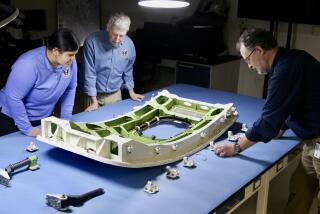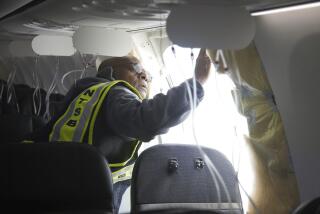Defective Bolts Permeate U.S. Industry, Military, Prober Says
- Share via
WASHINGTON — Counterfeit, weak bolts have been spread throughout U.S. industry, threatening weapons and buildings and even finding their way into the space shuttle’s ground equipment, a congressional investigator said Friday.
“Our investigation indicates that such fasteners have been distributed throughout the civilian and military supply systems and have been installed on a number of military vehicles by defense contractors,” Stephen F. Sims told the House Energy and Commerce investigations subcommittee.
Sims, a staff investigator for the subcommittee, said tests conducted by a Defense Department center in Philadelphia that distributes supplies nationally found that one-fifth of the bolts it checked were counterfeits.
From Far East
Industry spot checks suggest that large percentages of the bolts--most probably imported from the Far East--bear bogus quality markings.
Some of the defective bolts, now being replaced, were found in the launch pad, vehicles and buildings at the space shuttle launch facility at Vandenberg Air Force Base in California, Sims said.
Private defense contractors also have been victimized, Sims said. The FMC Corp. of San Jose, Calif., builder of the Bradley fighting vehicles the Army is buying, was alerted to the counterfeiting problem last year and threw out $700,000 worth of bolts, he said.
Probes Under Way
Sims said several investigations are under way on counterfeit bolts, but that so far no one has been prosecuted.
Sims also distributed documents stating that fasteners manufactured in Japan and Taiwan have been mislabeled at the request of unidentified American importers.
Rep. John D. Dingell (D-Mich.), chairman of the subcommittee, suggested “a strong correlation between the flood of mismarked and counterfeit fasteners and the decline of U.S. manufacturers.”
More to Read
Sign up for Essential California
The most important California stories and recommendations in your inbox every morning.
You may occasionally receive promotional content from the Los Angeles Times.










